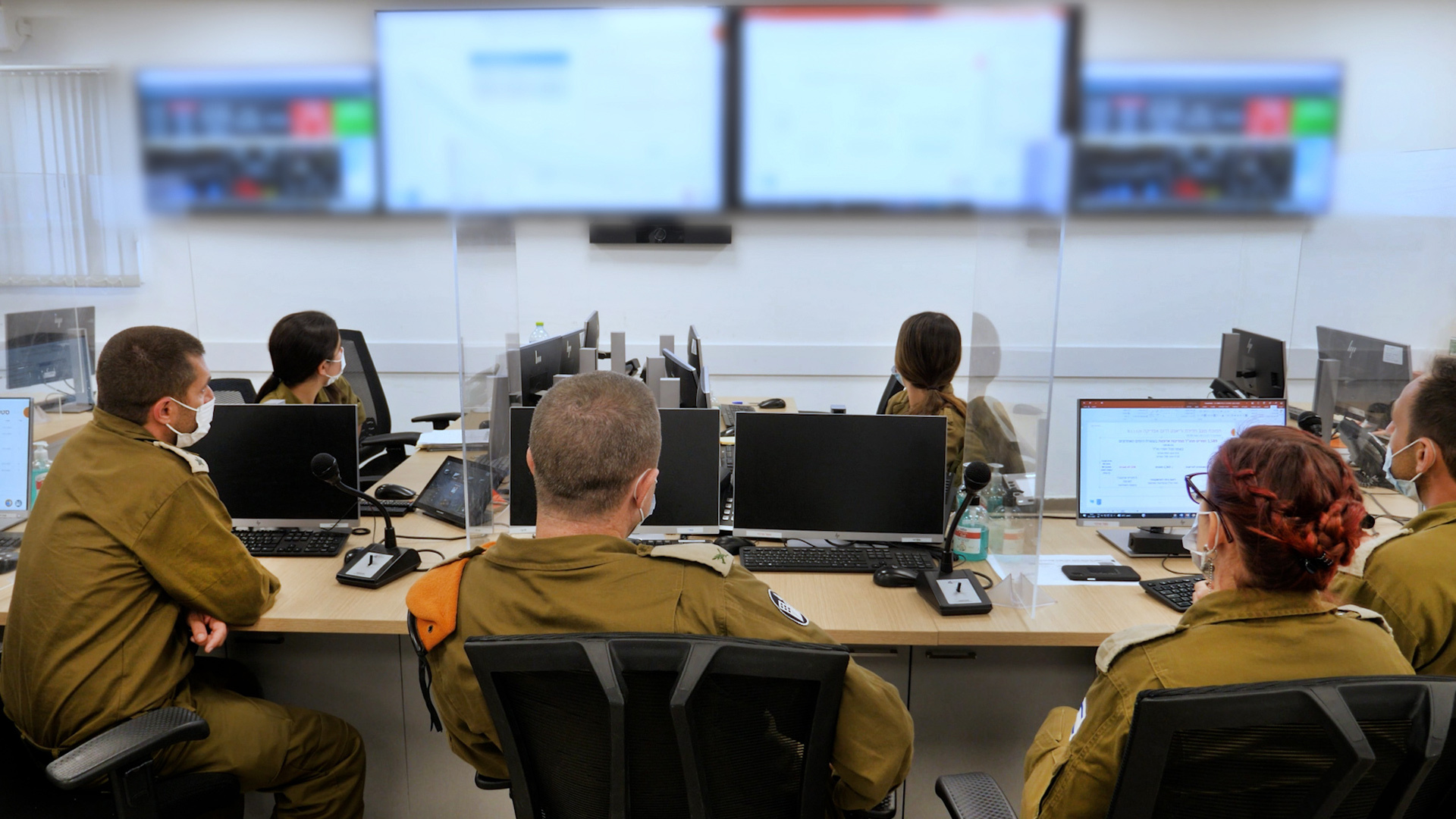
Around the world, every country is dealing with the coronavirus pandemic in its own way — drawing on its resources and hopefully learning from its weaknesses. That’s why Israel, enlisted one of its most trusted and prominent institutions to help — the Israel Defense Forces (IDF).
The Israel Defense Forces (IDF) is known around the world for its top-notch abilities in dealing with the enemies around it. Its Homefront Command base is located in Ramle, between Jerusalem and Tel Aviv.
“The Home Front Command [is] like a unit that can solve all the problems that other[s] cannot solve. It doesn’t matter if it is a missile strike. It doesn’t matter if it’s [an] earthquake. It doesn’t matter. It can be a variant; it can be an epidemic,” said Brigadier General Reli Margalith.
Margalith leads the Alon Command, responsible for the operation at the command-and-control center for Israel’s battle against COVID-19.
“We try to support the Health Ministry by doing the operations to cut the chain and to do other things as much as needed to stop the COVID-19 pandemic, and to do as much as possible to let the people go back to real life,” Margalith told CBN News.
Manned by thousands of Israeli reservists, they can process more than 10,000 cases a day.
“The main advantage [is] that the army can recruit soldiers very fast, many of them, and do very fast operations and very power[ful] operations. It’s very different from civilian organizations [where] it takes a lot of time,” Margalith said.
Twice a day, various teams involved in the COVID fight, gather at the base to share information and make decisions.
“The basic challenge in [the] pandemic that’s never knowing anything. You have to study; you have to learn; you have to be creative; you have to be very agile,” he said.
On top of that, the Health Ministry and civilian organizations can have different priorities.
“You bring other agendas, you bring other DNA. This is the army DNA. This is a civilian DNA, and you have to sit together and to understand what is the [strength] of each one and to create better things. It’s not easy, but I must say that today after [a] few months, I think we understood each other, and we work very good together,” he added.
The center’s main job is contacting those testing positive and others to stop the chain of infection.
“We try to connect the dots and make the transition from the investigation of specific individuals into the understanding of the bigger picture,” said Major Harel Be’er, head of the Special Community and Education Task Force.
Be’er oversees the investigation room, where the calls are made.
“First is the investigation of the individual where we learn who you are, where you’ve been, who you’ve met, and this creates the most fundamental, basic database information layer,” Be’er told CBN News.
Specially designed algorithms help investigators understand how the disease might spread.
“We try to create some kind of clarification on the way the disease is moving forward and the reasons for it, as much as possible to understand what were the malfunctions or things we could have done better in order to prevent same event or similar events from reoccurring,” Be’er said.
Some may consider this an invasion of privacy.
“There is a very big conflict between the privacy of the person and the need to know where he was; and we believe in privacy in Israel. I think we are a very big democracy here in Israel, and I don’t think it goes too far,” Margalit said.
As the pandemic grew, CBN News visited the Homefront Command’s work in Nazareth, Israel’s largest Arab city. Margalith said if anything good came out of the pandemic is was the uniting of different people groups.
“The coronavirus crossed many borders between many kinds of populations. It breaks [down] some walls and borders. Once you speak about Coronavirus, you don’t look at Arabs and Israelis and the Jewish [people], and it doesn’t matter. Everybody supports everybody. And I think it works,” he said.
During the first lockdown, soldiers went door to door, delivering food and providing services to individual citizens.
Working together with Israel’s health care system, the Homefront Command also set up efficient, drive-through and other testing stations.
“We did like 220,000 sampling[s] a day and in Israel, it’s a lot, and we deal with like 40 labs,” Margalit said.
In November, Prime Minister Naftali Bennett called for a nationwide drill to test preparedness for the outbreak of a new variant.
“The right thing to do is to prepare for any scenario, check that all government ministries are ready, that hospitals know how to deal with extreme scenarios and that the scientists are carefully monitoring every variant that appears in the world while it is still small,” Bennett said at the time.
Then just a few weeks later, Israel discovered cases of the new Omicron variant inside the country.
“It was like a war game with the prime minister, and we practice it two or three weeks ago,” Margalith said of the exercise. “And we did now, exactly what we decided. It’s amazing.”
Margalith says flexibility is key to adapting to changing situations and he feels like their mission is succeeding.
“I believe that we cut many chains and I really believe that we reduced the amount of people [that got] infected and people [who] died. I can say that hundreds of people [are alive] because of the operation we did. I’m very proud being here,” Margalith added.
The remainder of this article is available in its entirety at CBN

